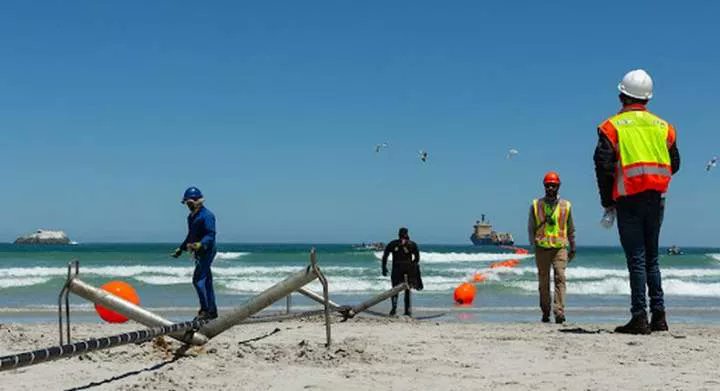Meta’s 2Africa subsea cable, spanning an impressive 45,000 km, has arrived in Lagos and Akwa Ibom States of Nigeria, marking a significant milestone in Africa’s digital connectivity landscape and touted as the world’s largest undersea cable.
News Central reports that the project’s Akwa Ibom phase has been completed, with the cable reaching the shores of Ibeno in Akwa Ibom state. The state-of-the-art cable network, facilitated by Bayobab and MTN Opco’s partnership, has successfully landed at the Mopo-Onibeju Lekki area of Lagos.
This project is overseen by the Equinix Company, MainOne, further solidifying Nigeria’s position as a key player in Africa’s digital connectivity revolution.
“Today’s landing marks the fourth in a series of six landings spanning five countries,” stated CEO Frédéric Schepens. “These include three destinations in West Africa—Ghana, Nigeria, and Côte d’Ivoire—as well as South Africa.” Schepens emphasised, ” local service providers here will gain access to world-class capacity in carrier-neutral data centres or open-access cable landing stations on a fair and equitable basis.”
Josephine Sarouk, Managing Director of Bayobab Nigeria, pointed out the profound impact of the deep-sea cable’s landing in Nigeria, affirming that it will catalyse the country’s digital economy.
Sarouk expressed, “This arrival will supercharge the digital economy, creating space for a vibrant ecosystem that delivers digital services to millions of Nigerians, aligning with the government’s vision for a thriving digital economy.”
She highlighted Bayobab’s investment in the 2Africa project as part of their commitment to customers, enhancing network resilience and capacity to meet the escalating demands for digital services such as Fintech, IoT, AI, and e-learning.
The consortium behind the 2Africa subsea cable includes Meta, China Mobile International, MTN Global Connect, Orange, Vodafone, Egypt Telecom, Saudi Telecom Company, and the West Indian Ocean Cable Company.
The ambitious deep-sea cable project is poised to link 32 other African countries, facilitating direct support for economic development across the continent. Moreover, it promises to catalyse the expansion of 4G and 5G networks, as well as enhance broadband accessibility for millions of individuals and businesses throughout Africa.

